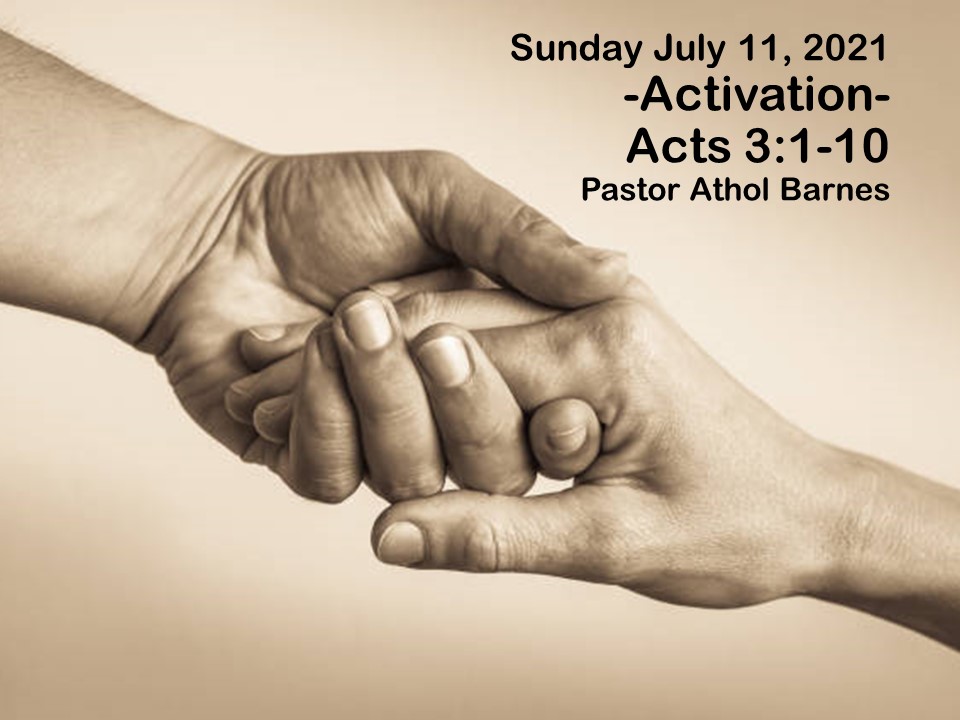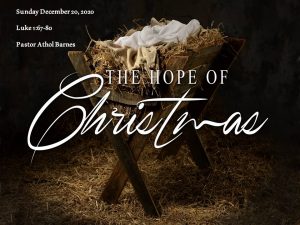
Why do you go to church?
There are various reasons why people attend a worship service; tradition, routine, to meet friends or because they are hungry for the truth. There is tremendous richness in the fellowship we enjoy as we worship with other followers of Jesus.
In the Apostle John’s first letter he begins with the foundation of the church. In chapter 1, there are three keys to a healthy church community.
John begins with, “That which was from the beginning,” (1 John 1:1a). He began his Gospel in a similar way, “In the beginning was the Word, and the Word was with God, and the Word was God.” (John 1:1). Both echoing Genesis 1:1, “In the beginning, God created the heavens and the earth.”
John begins his letter with the declaration of our foundation in the risen Lord Jesus. John was a living witness to the life, death, and resurrection of Jesus. He begins by saying that Jesus was more than a mere man, but that he was in fact the son of God and that at the beginning of creation, Jesus was there. John confirms that he heard Jesus speak, he saw him with his own eyes, and he touched him with his own hands. And in verse 2 and 3 he writes that this Jesus is the eternal son of God who became flesh.
John was declaring the Gospel message. The son of God who was born of a virgin and lived a perfect sinless life in order to become the spotless lamb of God who takes away the sin of the world. This Gospel message is the foundational truth on which the church stands.
Sadly, it is possible to know this truth, without this truth transforming your life. It is possible to profess faith in Jesus, without expressing faith by living a consistent life of following Jesus, dying to our own sinful flesh. Believing the truth of the Gospel brings us into fellowship with God and his son Jesus, John ties this to the church in verse 7, “But if we walk in the light, as he is in the light, we have fellowship with one another, and the blood of Jesus his Son cleanses us from all sin.”
Fellowship with one another in the church begins with the foundation of individual fellowship with God through Jesus. We cannot be in true fellowship as the church if we are not followers of Jesus.
In verse 5, John writes, one of the greatest theological statements in the whole Bible is, “God is light”. He is the source of light and truth (John 8:12).
God began creation by stating, “let there be light” genesis 1:3. Light is the source of life and the beginning point of creation. Light is a symbol of God’s presence in the Bible and a picture of His perfect holiness and righteousness. Light reveals reality.
C.S. Lewis wrote, “We believe that the sun has risen, not because we see it, but because by it we see everything else”.
Verses 6 to 10 are a repetitive back and forth of walking in the light and walking in darkness.
Each of the verses begin with the word “if”, and John seems to play one against the other for 5 verses. Verses 6, 8 and 10 all depict the danger and the damage caused by walking and living in sin.
Notice that each of these verses begin with the statement, “if we say…”. This is pride, the essence of sin, where I try to convince myself and those around me that I am walking in truth and light, whereas I know in my heart that I am walking in sin and darkness. That there is a separation in my relationship with God and others in the body of Christ.
When we give in to temptation and sin, we are uncomfortable in the light and the natural reaction is to separate from the body of Christ. Slowly we begin to attend church less frequently, we slowly start pulling back and pretty soon we are not in fellowship anymore.
If sin pulls us away from fellowship, what do we need to do? This is where the wonderful promises of 1 John 1:7 and 9 are so incredibly encouraging.
As the light of God reveals our sin, and we are prompted by the Holy Spirit, we repent of our sins, 1 John 1:9, “If we confess our sins, he is faithful and just to forgive us our sins and to cleanse us from all unrighteousness.” God promises to forgive your sin, because of what Jesus has done on the cross.
When we sin, we damage our relationship with God. We struggle to pray and read His word. We experience to loss of Joy and peace as we are outside of the will of God. As a result of this, we also experience a loss of fellowship with each other.
But the wonderful promise is that repentance restores fellowship. I love to pray the prayer of David in Psalm 51:10, “Create in me a clean heart, O God, and renew a right spirit within me.” The cleansing of our sin is a creative miracle of God, and it is something that we need to do daily.
As we daily repent of our sins, we walk in the light, enjoying fellowship with God and we walk in fellowship with other believers.
One aspect of the church has become so clear in the last eighteen months, we need to walk in fellowship with each other. Hebrews 10:23-25 has taken on a renewed meaning to us all.
When we are separated from the body of Christ, it is easy to be overwhelmed by fear as we see the world around us. It is a world controlled by fear.
Fear comes when we misplace our trust.
The prophet Jeremiah spoke to the nation of Judah when they were in a downward spiral of sin and idolatry. They were blindly heading towards judgment, much the same as our nation today (See Jeremiah 17:5-8). Jeremiah said that trusting in man results in a curse!
How many of us are trusting in man before we trust in God?
God calls us to be a part of the fellowship of believers so that we can encourage one another to keep trusting in the Lord our God.
Keeping the foundation of the Word of God and the Gospel as our starting point.










